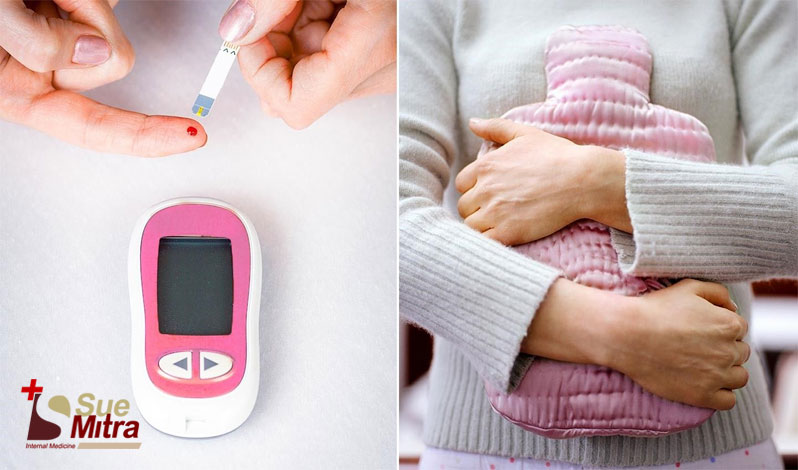
20, Nov 2023
Overview:
Polycystic Ovary Syndrome (PCOS) and Diabetes are two separate medical conditions that are often associated with each other. PCOS is a hormonal disorder that affects women of reproductive age, while diabetes refers to a group of metabolic diseases that affect the body's ability to regulate blood sugar levels.
Here are some following points about the relationship between PCOS and diabetes:
1. Insulin resistance:
Both PCOS and type 2 diabetes are characterized by insulin resistance, which means the body's cells do not respond effectively to the hormone insulin. This leads to high levels of insulin in the blood, which can contribute to the development of PCOS.
2. Hormonal imbalance:
PCOS is primarily caused by an imbalance in reproductive hormones, specifically an excess of androgens (male hormones). This hormonal imbalance can also disrupt insulin production and cause insulin resistance, increasing the risk of diabetes.
3. Risk factors:
Women with PCOS are at a higher risk of developing diabetes compared to those without the condition. The risk is further increased if there is a family history of diabetes or if the individual is overweight or obese.
4. Glucose intolerance:
PCOS is associated with impaired glucose tolerance, which means the body has difficulty regulating blood sugar levels. This condition increases the risk of developing diabetes, as prolonged high blood sugar levels can damage the pancreas and reduce insulin production.
5. Weight management:
Obesity is commonly seen in women with PCOS and is a significant risk factor for diabetes. Losing weight through a healthy diet and regular exercise can help improve insulin sensitivity and reduce the risk of diabetes in individuals with PCOS.
6. Gestational diabetes:
During pregnancy women with PCOS are also at a higher risk of developing gestational diabetes. Gestational diabetes increases the risk of complications for both the mother and baby during pregnancy and can lead to a higher risk of developing type 2 diabetes later in life.
7. Monitoring blood sugar levels:
Women with PCOS should regularly monitor their blood sugar levels and undergo screening tests for diabetes, especially if they have additional risk factors such as obesity or a family history of diabetes. Early detection can lead to prompt intervention and better management of the condition.
8. Medications:
Certain medications used to manage PCOS, such as oral contraceptives and metformin, can also impact blood sugar levels. Women with PCOS who are at risk of developing diabetes should work closely with their healthcare provider to determine the most appropriate treatment options.
9. Lifestyle modifications:
For managing both PCOS and diabetes adopting a healthy lifestyle is crucial. This includes maintaining a balanced diet, engaging in regular physical activity and etc. These lifestyle modifications can improve insulin sensitivity and reduce the risk of developing diabetes or manage existing diabetes more effectively.
10. Multidisciplinary approach:
The management of PCOS and diabetes often requires a multidisciplinary approach involving various healthcare professionals, including endocrinologists, gynecologists, dietitians, and diabetes educators. This approach ensures comprehensive care, tailored treatment plans, and regular monitoring to prevent and manage both conditions effectively.
Conclusion:
PCOS and diabetes are interconnected conditions that share common risk factors and characteristics. Women with PCOS are at a higher risk of developing diabetes, especially type 2 diabetes. Taking proactive steps to prevent and manage both PCOS and diabetes is crucial for overall health and well-being.
Dr. Sue Mitra and her staff strive to offer their patients the best care, advice and services available in the medical field with the goal to keep patient healthy & happy.

Dr. Sue Mitra is board certified in international medicine. She is seen here with a Cologuard, which is a noninvasive colon cancer screening test. (Photo by: Tim Shortt/Florida Today)